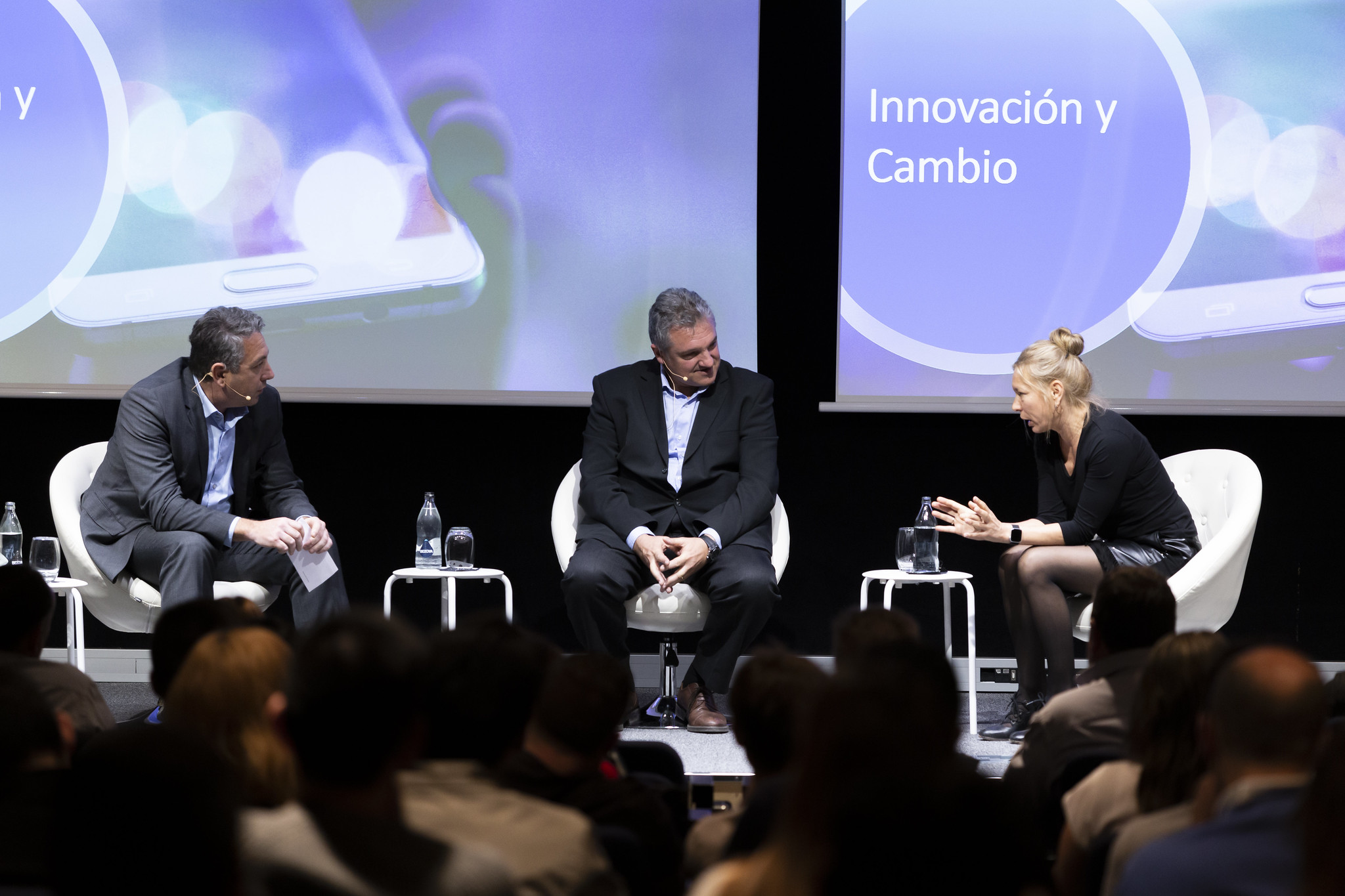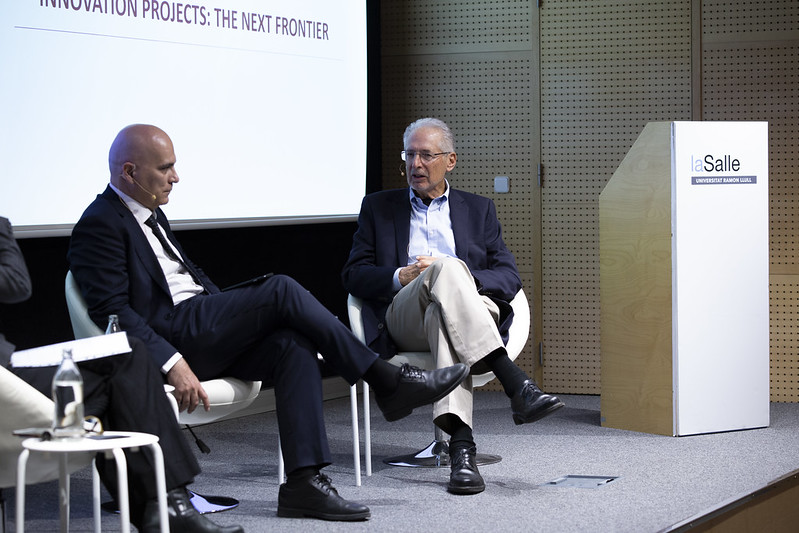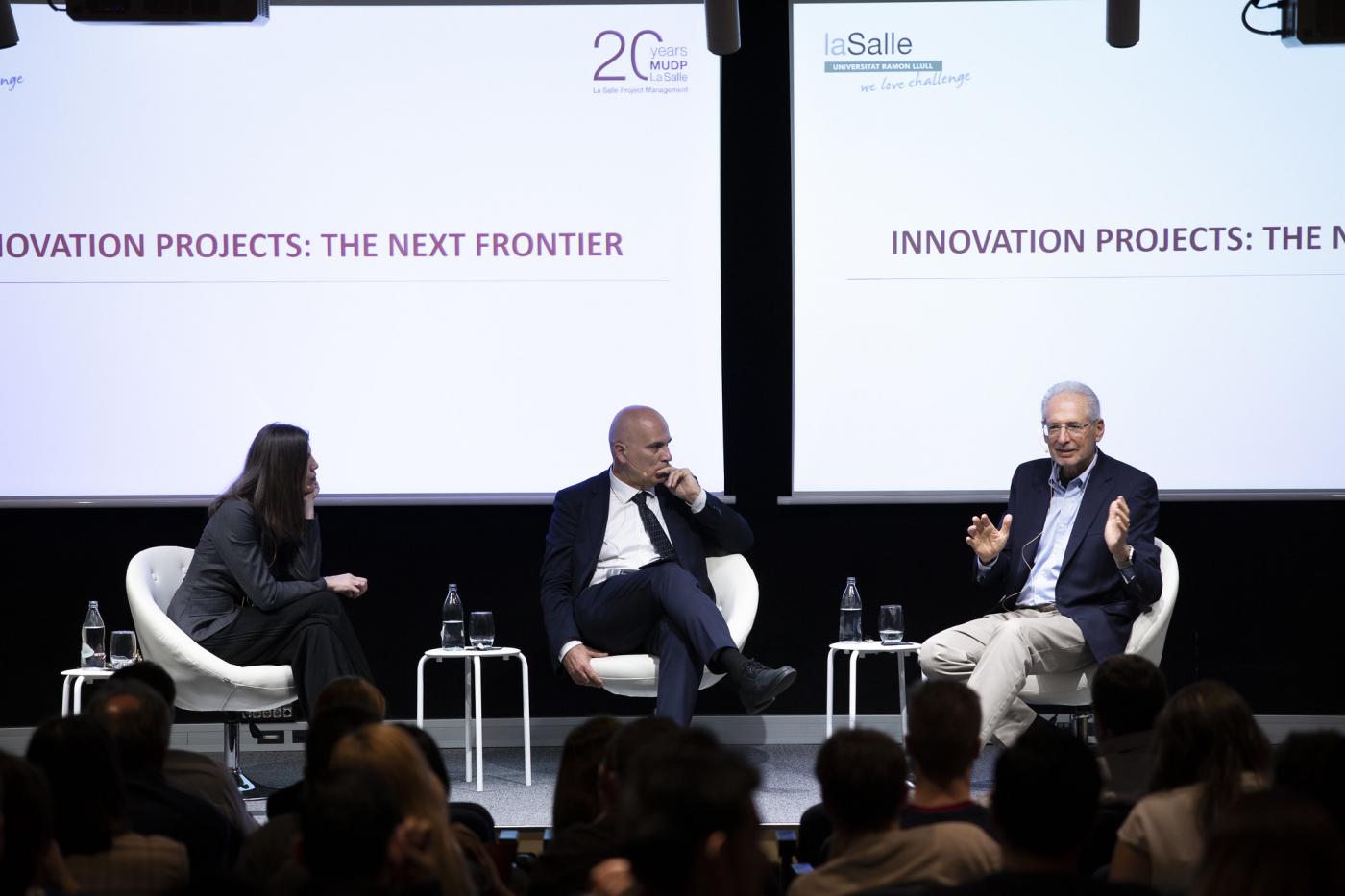Last November, the Official Master's in Project Management (MUDP) kicked off a special series of events to commemorate the programme’s 20th anniversary since its creation. In November, in we held an act entitled Project Management Beyond 2020, and two of the great gurus of the profession at the international level, Dr David Hillson (‘The Risk Doctor’) and Alfonso Bucero, reflected on the future of the speciality. The master’s has continued to celebrate its 20th anniversary with a similar event, with innovation as the central motif. The highlight was the face-to-face discussion between Jerome Engel, associate professor emeritus of the Haas School of Business of the University of Berkeley (California), and Josep Miquel Piqué, Director of Internationalisation and Innovation at La Salle-URL.
Under the title Innovation projects: The next frontier, the event provided an overview of the current state of the profession and discussed some of the major challenges facing project managers: transforming business culture, focusing strategy and meeting consumer needs. The special events don't end there, though. The MUDP will continue to celebrate its 20th anniversary in the coming months with three special events: the ‘Project Management and Change Management’ Open Class, run by Alfonso Bucero (in April); the ‘Management of Innovation Projects in the Digital Age’ Breakfast (in May); and a final closing ceremony in June.
Finding the keys to managing innovation projects
In the first part of the event, three experts from La Salle-URL took part in a round-table discussion on the management of innovation projects. Víctor Espinosa, head of the Knowledge area of La Salle-URL and coordinator of its Innovation programmes, and Anna Sánchez Granados, an Innovation Projects lecturer at La Salle-URL and president of the Digital Society Commission at Foment del Treball, were the two speakers on a panel moderated by Xavi Baño, Director of Innovation at La Salle-URL.

The debate reflected on business culture and the importance of innovation as a synonym for change and development in organisations. Firstly, the concept was defined and put into context. “Innovation has to do with the development of improved products, processes or services where the objective is to make improvements within the company,” explained Anna Sánchez. On the importance of knowing how to lead and manage teams, Victor Espinosa explained that “leaders have to make people productive in high-pressure, uncertain environments, and have to be transparent when communicating”. Anna Sánchez also spoke of values such as “empathy” and “versatility” as important in those aspiring to be a good leader.
The guests talked about the conditioning factors and barriers in innovation projects that always exist, and how to deal with such situations. Anna Sánchez was clear: “It is important to identify and look for a plan to break down those barriers, perform a correct SWOT analysis of the situation, finding the threats so that they can be solved in a timely way”. Victor Espinosa then explained how to integrate innovation into companies: “A very sincere process has to be carried out to analyse which initiatives best align the company in relation to where it wants to be in a few years’ time. It’s important to have a clear vision and direction”. The group also discussed the possibility for companies to be flexible and versatile by changing their strategy depending on the opportunities that appear along the way.
The face-to-face session between Jerome Engel and Josep Piqué
The highlight of this second event of the 20th anniversary of the MUDP was the face-to-face between Jerome Engel, one of the world’s greatest experts in innovation and entrepreneurship, and Josep Miquel Piqué, who leads La Salle Technova, La Salle-URL's innovation park. The conversation was about how innovation transforms opportunities into value when talent, technology and capital are properly combined. Jerome Engel, in his first speech, spoke about the importance of defining what a project means to you: “If you know exactly the form it will take, the magnitude of the result, congratulations, because that’s something I can’t say”. He pointed out that to start a project, you have to “see the potential to create value, even when you don’t know exactly how it will be created”.

“In entrepreneurship, innovation is important, especially open innovation”, said Engel. In this regard, Piqué pointed out that “we have to differentiate between incremental innovation and disruptive innovation”, and that “many companies may not find these innovative methods within the organisation itself”. In this first part of the conversation, the speakers pointed out the importance of establishing relationships with partners and being open to experimentation and discovery. They also emphasised being able to learn from mistakes and failures, to take stock and learn from what went wrong to improve in future attempts. “It’s important to celebrate acquired knowledge,” explained Jerome Engel.
“It’s important to know how to select how many challenges, how many ideas, you’re willing to handle,” added Josep Piqué. The event ended with a question and answer session in which the nearly one hundred people who attended the event, as well as the many who followed it from home via streaming, were able to take part. Topics discussed included technology, employment, the impact of innovation, the future vision of the profession and some keys to understanding entrepreneurship. The guests finished their speeches by encouraging those attending to take part in the upcoming events to continue celebrating the 20th anniversary of the Official Master’s in Project Management:

